Alex 'Sandy' Pentland
Leveraging Large Language Models for Learning Complex Legal Concepts through Storytelling
Feb 26, 2024Abstract:Making legal knowledge accessible to non-experts is crucial for enhancing general legal literacy and encouraging civic participation in democracy. However, legal documents are often challenging to understand for people without legal backgrounds. In this paper, we present a novel application of large language models (LLMs) in legal education to help non-experts learn intricate legal concepts through storytelling, an effective pedagogical tool in conveying complex and abstract concepts. We also introduce a new dataset LegalStories, which consists of 295 complex legal doctrines, each accompanied by a story and a set of multiple-choice questions generated by LLMs. To construct the dataset, we experiment with various LLMs to generate legal stories explaining these concepts. Furthermore, we use an expert-in-the-loop method to iteratively design multiple-choice questions. Then, we evaluate the effectiveness of storytelling with LLMs through an RCT experiment with legal novices on 10 samples from the dataset. We find that LLM-generated stories enhance comprehension of legal concepts and interest in law among non-native speakers compared to only definitions. Moreover, stories consistently help participants relate legal concepts to their lives. Finally, we find that learning with stories shows a higher retention rate for non-native speakers in the follow-up assessment. Our work has strong implications for using LLMs in promoting teaching and learning in the legal field and beyond.
Verifiable evaluations of machine learning models using zkSNARKs
Feb 05, 2024Abstract:In a world of increasing closed-source commercial machine learning models, model evaluations from developers must be taken at face value. These benchmark results, whether over task accuracy, bias evaluations, or safety checks, are traditionally impossible to verify by a model end-user without the costly or impossible process of re-performing the benchmark on black-box model outputs. This work presents a method of verifiable model evaluation using model inference through zkSNARKs. The resulting zero-knowledge computational proofs of model outputs over datasets can be packaged into verifiable evaluation attestations showing that models with fixed private weights achieve stated performance or fairness metrics over public inputs. These verifiable attestations can be performed on any standard neural network model with varying compute requirements. For the first time, we demonstrate this across a sample of real-world models and highlight key challenges and design solutions. This presents a new transparency paradigm in the verifiable evaluation of private models.
The Law and NLP: Bridging Disciplinary Disconnects
Oct 22, 2023Abstract:Legal practice is intrinsically rooted in the fabric of language, yet legal practitioners and scholars have been slow to adopt tools from natural language processing (NLP). At the same time, the legal system is experiencing an access to justice crisis, which could be partially alleviated with NLP. In this position paper, we argue that the slow uptake of NLP in legal practice is exacerbated by a disconnect between the needs of the legal community and the focus of NLP researchers. In a review of recent trends in the legal NLP literature, we find limited overlap between the legal NLP community and legal academia. Our interpretation is that some of the most popular legal NLP tasks fail to address the needs of legal practitioners. We discuss examples of legal NLP tasks that promise to bridge disciplinary disconnects and highlight interesting areas for legal NLP research that remain underexplored.
A Study of Compositional Generalization in Neural Models
Jul 08, 2020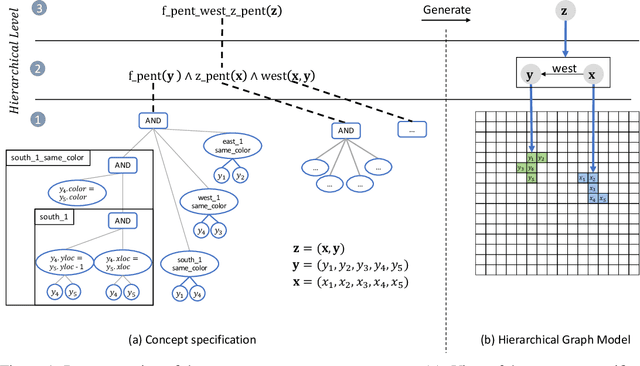
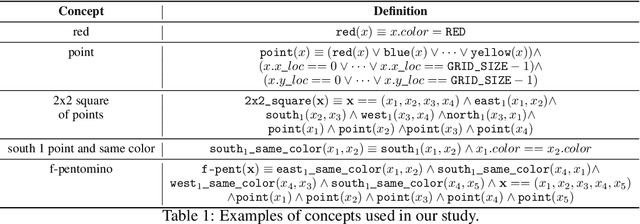
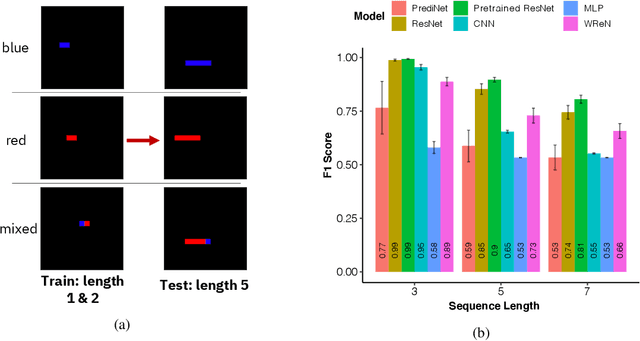
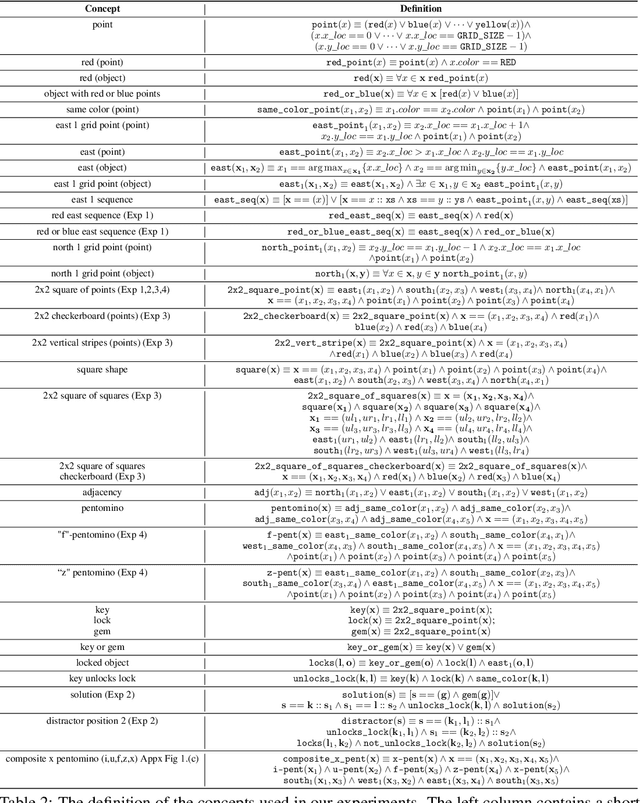
Abstract:Compositional and relational learning is a hallmark of human intelligence, but one which presents challenges for neural models. One difficulty in the development of such models is the lack of benchmarks with clear compositional and relational task structure on which to systematically evaluate them. In this paper, we introduce an environment called ConceptWorld, which enables the generation of images from compositional and relational concepts, defined using a logical domain specific language. We use it to generate images for a variety of compositional structures: 2x2 squares, pentominoes, sequences, scenes involving these objects, and other more complex concepts. We perform experiments to test the ability of standard neural architectures to generalize on relations with compositional arguments as the compositional depth of those arguments increases and under substitution. We compare standard neural networks such as MLP, CNN and ResNet, as well as state-of-the-art relational networks including WReN and PrediNet in a multi-class image classification setting. For simple problems, all models generalize well to close concepts but struggle with longer compositional chains. For more complex tests involving substitutivity, all models struggle, even with short chains. In highlighting these difficulties and providing an environment for further experimentation, we hope to encourage the development of models which are able to generalize effectively in compositional, relational domains.
Modeling the Temporal Nature of Human Behavior for Demographics Prediction
Nov 15, 2017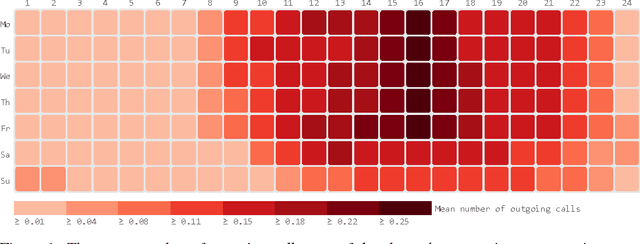
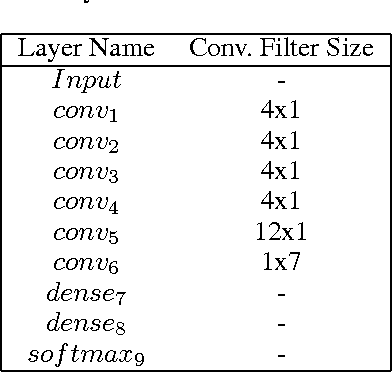
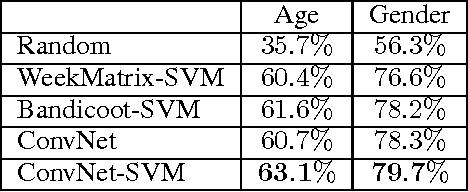

Abstract:Mobile phone metadata is increasingly used for humanitarian purposes in developing countries as traditional data is scarce. Basic demographic information is however often absent from mobile phone datasets, limiting the operational impact of the datasets. For these reasons, there has been a growing interest in predicting demographic information from mobile phone metadata. Previous work focused on creating increasingly advanced features to be modeled with standard machine learning algorithms. We here instead model the raw mobile phone metadata directly using deep learning, exploiting the temporal nature of the patterns in the data. From high-level assumptions we design a data representation and convolutional network architecture for modeling patterns within a week. We then examine three strategies for aggregating patterns across weeks and show that our method reaches state-of-the-art accuracy on both age and gender prediction using only the temporal modality in mobile metadata. We finally validate our method on low activity users and evaluate the modeling assumptions.
 Add to Chrome
Add to Chrome Add to Firefox
Add to Firefox Add to Edge
Add to Edge